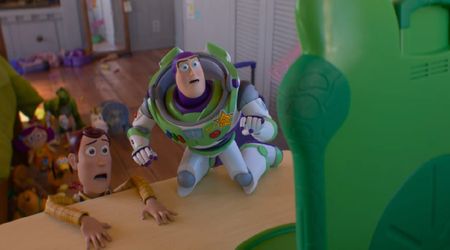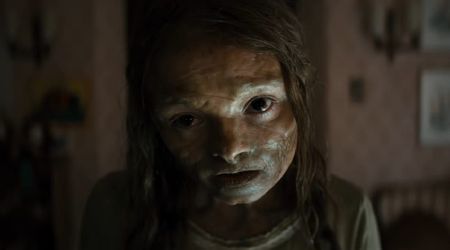Decoding the tortured life of Asian elephants: Director Ashley Bell shares her experience filming her documentary

Tucked away in the lush green tropical forests of Thailand is a secret. Thinly veiled underneath the culture of tourism and entertainment, Asian elephants are slowly becoming a rarity.
Their life-threatening, soul-crushing domestication is painful, to say the least, and to make matters worse, they are completely neglected.
Actor and director Ashley Bell's new documentary 'Love & Bananas: An Elephant Story' tries to chronicle the plight of these gentle giants through her lens for the world to see.

Ashley has been the woman behind films like 'The Last Exorcism I & II' and 'Carnage Park', both films of the horror genre, but it appears as though she doesn't shy away from exploring her talents as an artist.
After two years of waiting, she finally got her heart's desire to accompany world-renowned Asian elephant conservationist, Sangdeaun Lek Chailert, on a daring mission with her team of four, to rescue Noi Na, a 70-year old captive, partially blind trekking elephant weighing 8,000 pounds and bring her 500 miles across to freedom in a climate as hot as 95 degrees!
"It’s harrowing and exhilarating at the same time. On an elephant rescue, there’s no room for emotion, because emotion clouds your judgment. I’ve never been in a situation where so much could go wrong so fast. Lek had to stay so alert. Elephant rescues are rare and difficult, and we waited two and a half years to go on that rescue. It was a privilege."
While African elephants have been slaughtered for their ivory, these elephants have a different reality.
"Most Americans only see Asian elephants in entertainment and assume the elephant is enjoying itself. When in fact, what went on for that elephant to become a creature of entertainment is behind an iron curtain," she explains.
Animal rescues are always unpredictable and a huge responsibility, after all, you have a life hanging in the balance. She says that it was all the more difficult to do it in Thailand, because of how much the abuse of elephants had seeped into its social and traditional fabric.
"In Thailand, it is very difficult and scary to change tradition," she says before adding that thankfully, that is changing and these animals are finding homes.
"Lek provides an alternative for trekking camp owners to turn their camps into humane sanctuaries, which ends up being more profitable for the camp and also provides employment for the surrounding areas. During filming, we were documenting the efforts of Lek Chailert that have been honed and improved by her years on the frontlines."
In the film, she also talks about the terrifying tradition called 'Pajan' which is also known as the crush box. "Baby elephants are taken away from their mother, put in a wooden box and their legs are tied to the box. They are then beaten for 24 hours, for a week, until the bond between the elephant and its mother is replaced by the fear of man and whatever tool the man is using (a bullhook, bamboo with a nail in it, a switch, etc.). Many die in the process," she explains matter-of-factly, but one can only imagine how much it would hurt to see the effects of it on a living, breathing creature.
She also adds that while most people are unaware of it, every single captive Asian elephant undergoes 'Pajan'.

The team went through a lot to capture the whole story on camera too.
"Every hour, there were multiple fires to put out, from Noi Na almost fainting and tipping the truck over, to our cameraman being chased by an elephant, to our sound guy getting kicked in the shin by an elephant, to being surrounded by the Cambodian military with AK-47s. That was Day 1," she says, but believes it was worth it.
"As an actress, it is easy to live a very self-involved life with one concern – your career. Lek is completely selfless," she says, "Lek refers to elephants as people. She treats them with dignity and respect. They are her family. Because of the environment, Lek has created in her sanctuary, it was exhilarating to watch the miracle of an elephant that had been through years of suffering and abuse to 'forgive' and run free. To participate in changing the lives of 31 captive elephants was humbling."
The heartwarming film aims to ignite a sense of hope, and a new way of thinking about this species while exposing the plight of Asian elephants and the people who work tirelessly to save them. Her latest ebook 'Shoot It, Sell It, Show it: How I made an independent film with grit and Google' is out too where she shares "advice, tips, and knowledge from the five years of making Love & Bananas."
Apart from her work on the documentary, Ashley has also acted in a slew of movies that she is keen for you to catch up on. There's 'The Swerve', directed by Dean Kapsalis, which she says is "a twisted family drama, and a film called 'The Delta Girls,' directed by a really cool, up and coming female director named Jacqueline Bethany."










